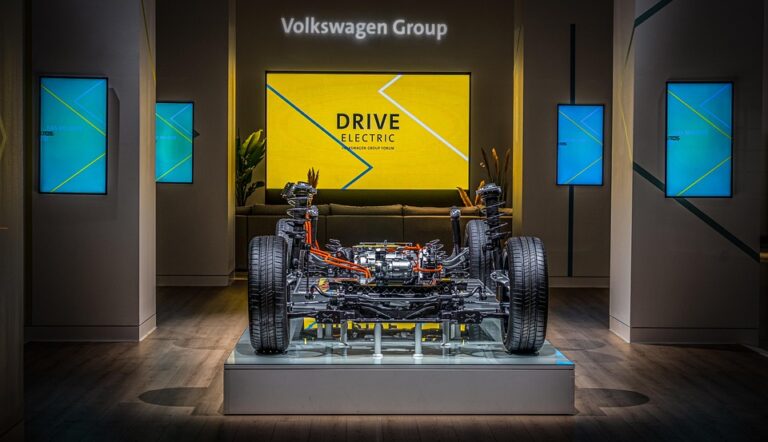The Rise of EV Startups: Disrupting the Automotive Industry in 2023
As we step into 2023, the automotive landscape is undergoing a seismic shift, chiefly driven by the burgeoning wave of electric vehicles (EVs). No longer confined to the realms of established automakers, the electric vehicle market is increasingly being propelled by innovative startups that are challenging the status quo. This article explores how these emerging players are disrupting the automotive industry and contributing to a sustainable future.
The Electrifying Growth of the EV Market
The global demand for electric vehicles continues to soar, with sales figures reflecting a transformative trend. In 2022 alone, EV sales surpassed 10 million units, a staggering increase compared to previous years. This surge is largely attributed to:
- Government Incentives: Various countries offer substantial tax breaks and incentives to promote EV adoption.
- Technological Advancements: Breakthroughs in battery technology are enhancing the range, performance, and affordability of EVs.
- Environmental Awareness: Rising concerns over climate change are pushing consumers towards more sustainable transportation options.
As a result, automotive startups are capitalizing on this momentum, shaping the future of mobility with innovative solutions.
Key Players in the EV Startup Ecosystem
Several startups are making headlines in 2023, each uniquely contributing to the electric vehicle sector:
1. Rivian: The Advent of Electric Adventuring
Rivian made waves with its all-electric R1T pickup truck and R1S SUV, catering specifically to adventure enthusiasts. With a commitment to sustainability and off-road performance, Rivian’s vehicles are designed to provide not just transportation, but an experience. The startup recently secured substantial investor backing, reinforcing confidence in its disruptive potential.
2. Lucid Motors: Redefining Luxury with Sustainability
Lucid Motors is challenging traditional luxury automakers with its high-performance electric sedans. The Lucid Air boasts industry-leading range and cutting-edge technology, all wrapped in an opulent design. Their focus on a sleek user experience and sustainable materials makes them a prominent player in the luxury EV market.
3. Canoo: Innovating with Versatility
Canoo takes a different approach by offering a modular design in its electric vehicles, which can adapt to various purposes, from leisure to business. With an eye on urban mobility, Canoo’s unique subscription model is appealing to consumers seeking flexibility without the traditional burdens of car ownership.
The Technological Edge of Startups
EV startups are not just competing with established manufacturers; they are often outpacing them in technology innovation. Here’s how:
Battery Technology
Startups are at the forefront of developing advanced battery solutions. For instance, companies like Fisker and QuantumScape are exploring solid-state batteries that promise higher energy density, faster charging times, and improved safety.
Software and Connectivity
In the age of the connected car, startups are leveraging software to enhance user experiences. Many are employing over-the-air updates, smart navigation systems, and AI-driven analytics, bringing features that go beyond mere transportation.
Sustainable Manufacturing Practices
Startups are also committed to greener production processes. By focusing on sustainable materials and innovative recycling methods, companies like Faraday Future are ensuring that their production eco-footprint is lighter than that of conventional automakers.
Opportunities for Consumers and the Industry
The rise of EV startups in 2023 presents significant opportunities for both consumers and the industry:
Consumer Benefits:
- Increased Choices: With a variety of manufacturers offering different designs, functionalities, and pricing, consumers can find an EV that aligns perfectly with their needs.
- Enhanced Affordability: As competition heats up, prices are likely to decrease, making EVs more accessible to the general public.
- Innovative Features: Startups are pushing the envelope on what to expect from vehicles, delivering cutting-edge tech and conveniences that enhance the driving experience.
Industry Impact:
- Investment Surge: The influx of funding into EV startups signals robust investor confidence, which fuels further innovation and development.
- Job Creation: As new companies emerge, there’s a simultaneous increase in job opportunities within the tech and manufacturing sectors.
- Environmental Reductions: A revamp in how vehicles are designed and manufactured can lead to lower carbon emissions, contributing positively to global sustainability efforts.
Challenges Ahead
Despite their promise, EV startups face challenges that could hinder growth:
- Supply Chain Issues: The semiconductor shortage and raw materials procurement can slow production rates.
- Competition from Established Brands: Legacy automakers are pivoting to electrification, intensifying competition.
- Market Saturation: As more startups enter the fray, distinguishing themselves will become increasingly critical.
Conclusion: A Pivotal Year for EVs
As we move further into 2023, it’s clear that electric vehicle startups are revolutionizing the automotive industry. By embracing innovation, sustainability, and consumer-centric designs, these companies are not just challenging established players; they are reshaping the very future of transportation. For consumers and investors alike, the rise of EV startups presents exciting opportunities, making this an exhilarating time in the automotive realm.
For the latest news and updates on electric vehicles, stay tuned to Buzzo.live, where we provide comprehensive insights into the shifting dynamics of the automotive industry.


